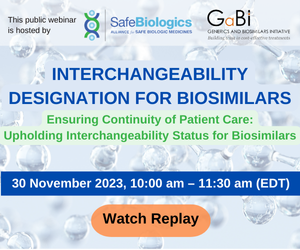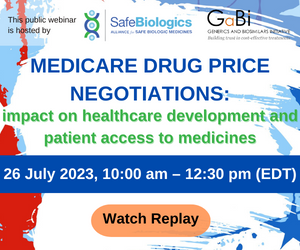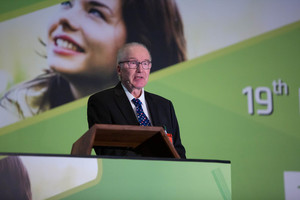To mark the publication of the 9th edition of the European Pharmacopoeia (Ph. Eur.), the EDQM (European Directorate for the Quality of Medicines) organized a large international conference in Tallinn, Estonia, which brought together representatives of European and international regulatory authorities, the World Health Organization (WHO), pharmacopoeias from different continents as well as industry and associations from Europe and beyond. Participants came from 41 different countries, including Brazil, Canada, India, Japan, South Africa, Taiwan and USA.
European Pharmacopoeia prepares for the future through exchange with stakeholders
Home/Conferences
|
Posted 14/10/2016
 0
Post your comment
0
Post your comment

Following welcoming addresses by Dr Susanne Keitel, EDQM Director, Ms Maris Jesse, Deputy Secretary General of the Ministry of Social Affairs of Estonia, and Dr Kristin Raudsepp, Director General of the Estonian State Agency of Medicines (Ravimiamet), the first plenary session addressed the EDQM’s role in the context of the European regulatory environment. Speakers on this topic included Professor Guido Rasi, Executive Director of the European Medicines Agency, and Professor Klaus Cichutek, Chair of the Management Group of the European Union Heads of Medicines Agencies, who provided an update on current challenges faced by the European regulatory network and underlined the important contributions of the EDQM in ensuring access to good quality medicines for patients.
The conference featured workshops dedicated to four key topics: setting pharmacopoeial standards for biotherapeutic products; the control of elemental impurities, i.e. the impact of the ICH Q3D Guideline on pharmacopoeial standards; new technologies; and excipients, other components and international harmonisation.
The feedback from each workshop was summarized during the final plenary session, which also included an update on progress on the replacement of animal tests in the Ph. Eur. and recent achievements and current hot topics. The outcome of the workshops and recommendations made during the conference will be discussed at the upcoming November 2016 session of the Ph. Eur. Commission and will help it shape its priorities for the next three years. More details will be made available in due course.
Participants were also reminded of the recent revision of the Ph. Eur. Commission’s working procedures to open nominations for its Groups of Experts and Working Parties to experts from non-European Pharmacopoeia Member States and non-observers. This will allow experts from all over the world to actively contribute to the elaboration of the 10th Edition of the Ph. Eur., ensuring that it remains of maximum relevance to its users as they ‘tackle future challenges of the quality of medicines together’.
Editor’s comment
Readers interested to learn more about complex drug pharmacopoeias are invited to visit www.gabi-journal.net to view the following manuscript published in GaBI Journal:
Complexity in the making: non-biological complex drugs (NBCDs) and the pharmacopoeias
GaBI Journal is indexed in Embase, Scopus, Thomson Reuters’ ESCI, and more.
Readers interested in contributing a research article or perspective paper to GaBI Journal – an independent, peer reviewed academic journal – please send us your submission here.
Permission granted to reproduce for personal and non-commercial use only. All other reproduction, copy or reprinting of all or part of any ‘Content’ found on this website is strictly prohibited without the prior consent of the publisher. Contact the publisher to obtain permission before redistributing.
Copyright – Unless otherwise stated all contents of this website are © 2016 Pro Pharma Communications International. All Rights Reserved.
Guidelines
US guidance to remove biosimilar comparative efficacy studies
New guidance for biologicals in Pakistan and Hong Kong’s independent drug regulatory authority
Policies & Legislation
WHO to remove animal tests and establish 17 reference standards for biologicals
ASBM/GaBI 2024 webinar on BIOSIMILAR RED TAPE ELIMINATION ACT (S2305)

Home/Conferences Posted 05/11/2024
ASBM/GaBI 2023 webinar on INTERCHANGEABILITY DESIGNATION FOR BIOSIMILARS

Home/Conferences Posted 12/12/2023
The best selling biotechnology drugs of 2008: the next biosimilars targets








Post your comment